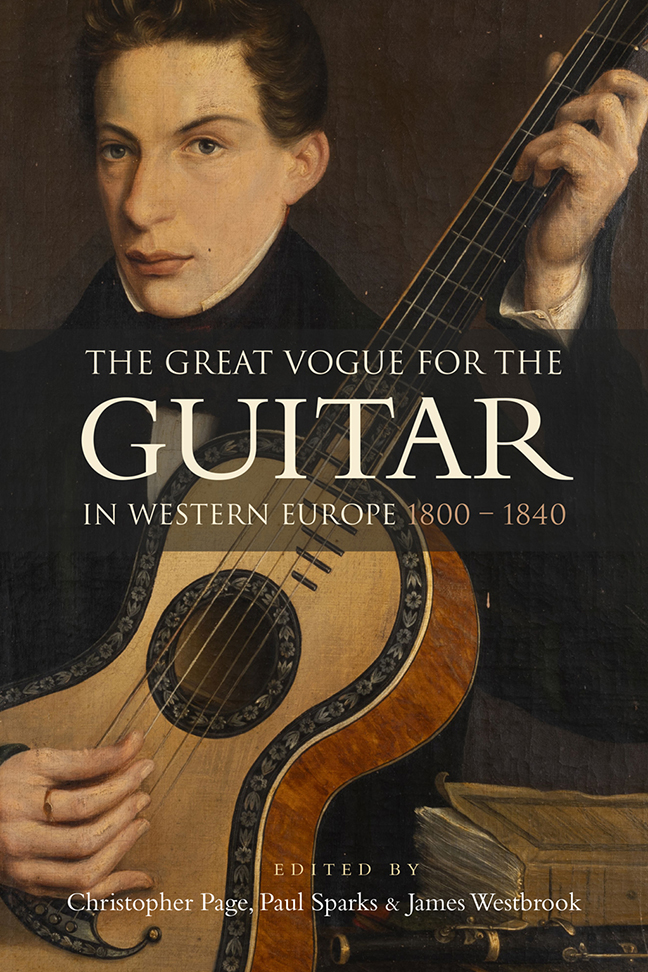Book contents
- Frontmatter
- Dedication
- Contents
- List of Illustrations
- Music examples
- The editors and the contributors
- Foreword
- Acknowledgements
- List of Abbreviations
- Introduction: The Great Vogue for the guitar
- I Contexts
- II The repertoire and its composers
- Appendix: A note on string-making
- Glossary of guitar terms
- Select Bibliography
- Index
6 - Teaching and learning the guitar
Published online by Cambridge University Press: 10 January 2024
- Frontmatter
- Dedication
- Contents
- List of Illustrations
- Music examples
- The editors and the contributors
- Foreword
- Acknowledgements
- List of Abbreviations
- Introduction: The Great Vogue for the guitar
- I Contexts
- II The repertoire and its composers
- Appendix: A note on string-making
- Glossary of guitar terms
- Select Bibliography
- Index
Summary
The careers of musicians in the early nineteenth century were usually a patchwork sewn together from various different activities. Of these, it was often their work as teachers that contributed most to their income. This was particularly the case with guitarists, for whom (as emphasised in Chapter 5) there was no paid employment in concert orchestras or theatre bands. The public concerts in which guitarists sometimes played depended often on the gratis assistance of participating musicians, implying that much of the time they performed without pay. Appearing at private concerts and parties arranged by members of the upper classes could be more lucrative, though this also varied; such performances were important, however, because they made the artist known to a fashionable clientele of potential students. When the German guitarist Karl (Charles) Eulenstein came to London in the 1820s, he hired a servant to deliver letters to the highest personages, offering to play without payment at their gatherings. The purpose of this ‘investment’ was to obtain students, which he claimed he soon did. Similarly, Fernando Sor's performance in 1815 at a most prestigious party of royals and nobles at Carlton House, less than a month after his arrival in London, undoubtedly helped him to gain patrons and students from the highest social circles. Teaching offered guitarists not only the security of a regular income but also esteem within the community through a network of social connections. In 1818, one observer in England pointed out that ‘of all classes of musicians, the teachers are the most respectable’.
Teachers and pupils
During the Great Vogue, guitar teachers met the demand for tuition and stimulated further activity in every corner of Europe. Well-known players, many of whom are featured in this book, settled in the major musical centres, where, when times were good, they could make a reasonable living from teaching, performing and publishing their music. In the smaller and more peripheral communities, we find a multitude of lesser-known names, often itinerant guitarists, who would sojourn there and offer their services for a limited period. The big cities easily provided opportunities for more than just a few renowned professors.
- Type
- Chapter
- Information
- The Great Vogue for the Guitar in Western Europe1800-1840, pp. 93 - 106Publisher: Boydell & BrewerPrint publication year: 2023



